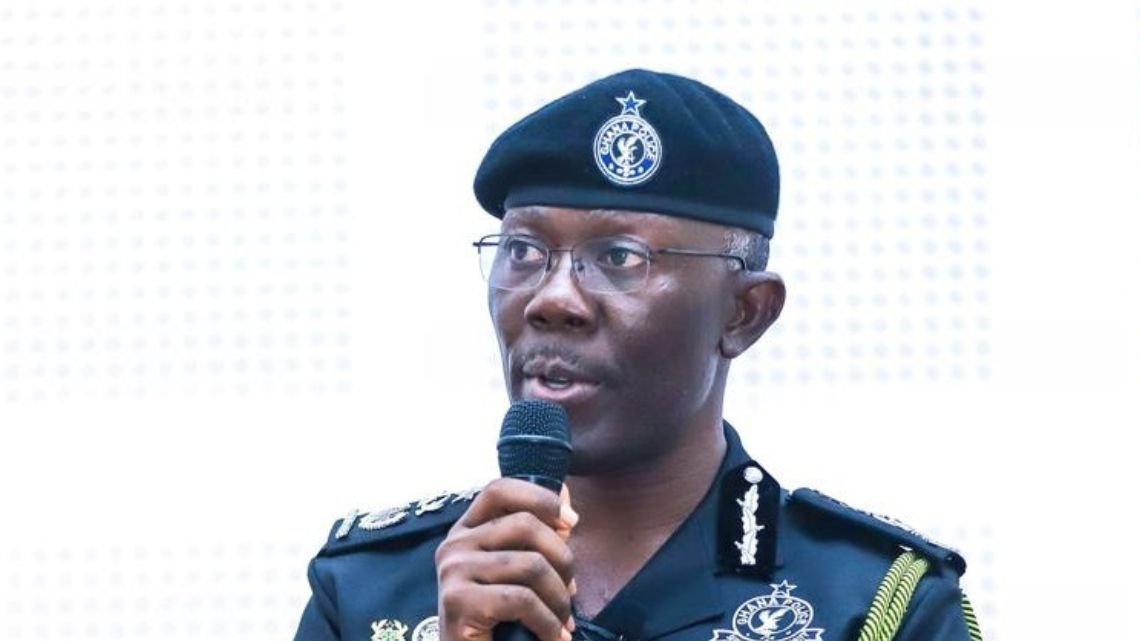Recent media reports about the potential removal of Inspector General of Police (IGP), Dr. George Akuffo Dampare, by President Nana Addo Dankwa Akufo-Addo have sparked widespread discussions about presidential powers in Ghana.
Some prominent figures within the ruling New Patriotic Party (NPP) claim that President Akufo-Addo has already signed Dr. Dampare’s dismissal letter, which will soon be made public.
Additionally, there are reports suggesting that the IGP has been asked to proceed on leave, pending his imminent removal. However, the Ghana Police Service has refuted these claims.
As the 2024 general elections approach, the stakes surrounding the IGP’s potential removal are high, with allegations that the NPP wants Dr. Dampare out of office. Regardless of the rumors’ validity, it is essential to understand the constitutional provisions regarding the appointment and removal of an IGP.
Presidential Powers and Constitutional Provisions
Appointment of the IGP
Article 202 of the 1992 Constitution outlines the appointment process for the IGP. The President, in consultation with the Council of State, appoints the IGP. Specifically:
- The Inspector-General of Police shall be appointed by the President acting in consultation with the Council of State.
- The IGP shall head the Police Service and, subject to the provisions of this article and the control and direction of the Police Council, be responsible for the operational control and administration of the Police Service.
- The President, acting in accordance with the advice of the Police Council, holds the power to appoint individuals to positions within the Police Service.
Article 195 further emphasizes the President’s authority in appointing the IGP as part of the public service:
- Subject to the provisions of this Constitution, the power to appoint persons to hold or act in an office in the public services shall vest in the President, acting in accordance with the advice of the governing council of the service concerned, in consultation with the Public Services Commission.
- The President may delegate some of his functions under this article to the governing council concerned, a committee, or any member of that council, or to any public officer.
These articles confirm the President’s authority to appoint the IGP, highlighting a process that involves consultation and adherence to advisory bodies.
Removal of the IGP
While Article 202 does not explicitly mention the removal process for the IGP, Article 199 addresses the retirement and removal of public officers, including the IGP:
- A public officer shall retire from public service upon reaching the age of sixty years.
- A public officer may retire after attaining the age of forty-five years.
- The pension payable to any person shall be exempt from tax.
- Notwithstanding clause (1), a public officer who has retired may be engaged for a limited period, not exceeding five years in total, under specific terms determined by the appointing authority.
Additionally, Article 191 provides protection for public officers, stating that they shall not be:
(a) Victimized or discriminated against for faithfully discharging their duties in accordance with the Constitution; or
(b) Dismissed, removed from office, or otherwise punished without just cause.
Furthermore, Article 296 ensures that any discretionary power exercised by the President must be fair, candid, and in accordance with due process, without being arbitrary or biased.
Historical Precedent and Legal Interpretation
Despite constitutional provisions suggesting that the President cannot remove the IGP arbitrarily, historical precedents indicate otherwise. For instance, on July 22, 2019, President Akufo-Addo directed then IGP David Asante-Apeatu to proceed on leave, with his deputy, Commissioner of Police (COP) James Oppong-Boanuh, acting as IGP until a substantive appointment was made. This was followed by the appointment of Dr. George Akuffo Dampare as the current IGP in August 2021.
Legal scholars and institutions have challenged the President’s power to unilaterally remove the IGP. Prof. Kwesi Aning of the Kofi Annan International Peacekeeping Training Centre and the IMANI Centre for Policy and Education have sued the state, seeking the Supreme Court’s interpretation of constitutional articles related to the appointment and removal of security agency heads.
Implied Presidential Powers
Article 297 of the Constitution is often cited to argue that the President possesses implied powers to remove public servants, including the IGP:
- The power to appoint includes the power to confirm appointments, exercise disciplinary control, and remove persons from office.
- Powers conferred or duties imposed may be exercised or performed as occasion requires.
- Powers given to enforce actions include all necessary powers to do so.
- The power to make regulations or directions includes the power to amend or revoke them.


